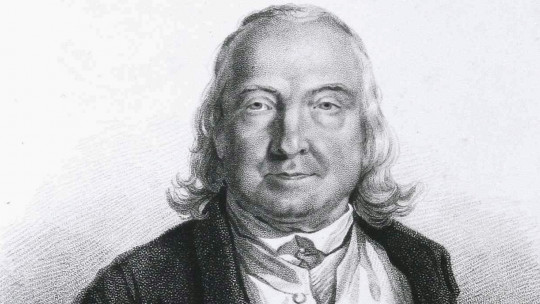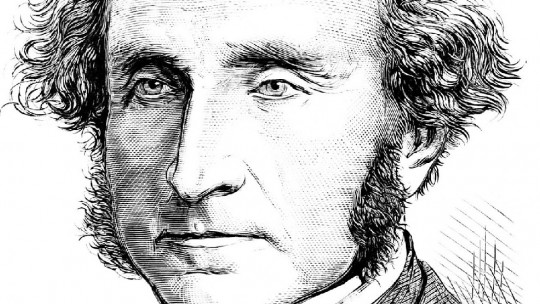
How to achieve happiness? This is a question that has been addressed by many philosophers throughout history. However, few have made this question the central aspect of their theories.
Jeremy Bentham, on the other hand, not only prioritized this theme when writing his works; In fact, he even tried to create a formula close to mathematics to try to predict what is and what is not something that will bring happiness.
Next we will give a brief review of the utilitarian theory of Jeremy Bentham, one of the most influential thinkers in the United Kingdom and the father of a philosophical current known as utilitarianism.
Who was Jeremy Bentham?
Jeremy Bentham was born in London in 1748, into a wealthy family. Like many who would become great thinkers, Bentham showed signs of great intelligence from a very young age, and at just three years old he began studying Latin. At the age of twelve he entered university to study Law, although later he would hate this field.
Throughout his life, Jeremy Bentham garnered many friendships and enmities, and came to publicly position himself in favor of the French Revolution. His works and thoughts served to inspire many other philosophers, among them John Stuart Mill, who would adapt Bentham’s utilitarianism following criteria based on general should focus on the pragmatic.
Jeremy Bentham’s utilitarian theory: its foundations
Below you can find a summarized version of Jeremy Bentham’s theory regarding his utilitarianism and concept of happiness.
1. The objective of ethics must be the common good
For Bentham, philosophy and humanity must focus on offer solutions to the question of how to obtain happiness since everything in life can be reduced to that purpose: neither reproduction, nor the defense of religion, nor any other similar objective can come to the fore.
2. The maximum good for the maximum number of people
This is derived from the previous point. Since human beings live in society, the achievement of happiness must guide everything else. But this conquest cannot be one’s own, but must be shared, just as we share with others everything that by default is not private property.
3. Pleasure can be measured
Jeremy Bentham wanted to develop a method to measure pleasure, raw material of happiness In this way, since happiness is a shared aspect, and not a private one, society would benefit from sharing a formula to detect where what one needs is and what to do to get it in each case. The result is the so-called happy calculationwhich, of course, is totally outdated, since to use it before we would have to use its categories to fit life experiences that are normally ambiguous into them.
4. The problem of impositions
It is very good to ask that everyone be happy, but in practice it is very possible that there will be clashes of interests. How to resolve these disputes? For Bentham, it was important to pay attention to whether what we do violates the freedom of others and, if so, to avoid falling into it.
This is a principle that cIt was eventually adopted by John Stuart Mill greatly influenced by Bentham, and which summarizes a liberal way of seeing things (and even an individualistic ideology.
Thus, in principle almost everything is allowed, except what threatens the integrity of others. This is the central aspect of the ideas of this philosophical current, very much in vogue even lately.
Criticism of this philosophy
Utilitarianism, both of Jeremy Bentham and the authors who adopted this perspective after him, has been criticized for being a type of thinking ad hoc that is, it starts from the conceptual categories that already exist and tries to justify certain methods over others, assuming that the question they answer is adequate and good.
For example: Is it appropriate to exploit one’s own image to get money? If we have previously identified the fact of earning money as one of the main sources of happiness, the answer to the previous question depends on whether that strategy is effective in achieving that; utilitarianism does not make us question the starting point.








